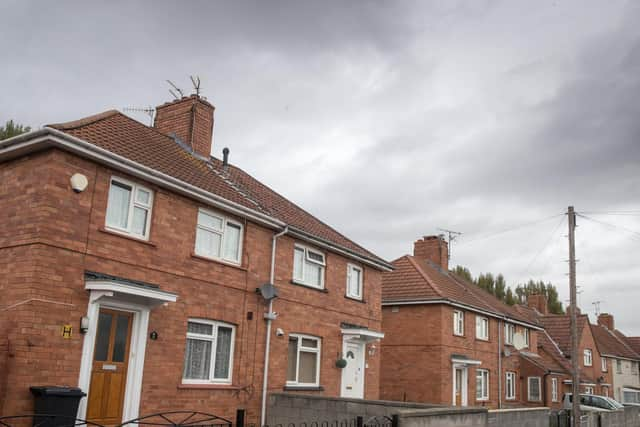Wakefield District Housing wants to build 500 more homes a year for the area: But will it be enough?


Around 20,000 people in the Wakefield district are on the waiting list for social accommodation, a number that has remained largely unchanged over the last couple of years.
Wakefield District Housing (WDH) says the number of people needing social housing may increase, depending on Covid's long-term impact on the economy and job security.
Advertisement
Hide AdAdvertisement
Hide AdWDH chief executive Andy Wallhead said the organisation was planning to add to its portfolio of 29,000 properties across the local area.


But he warned that supply of new homes was unlikely to ever outweigh demand.
In an interview on Wednesday, Mr Wallhead said: "Certainly demand for rental property is likely to go up.
"When there’s an economic downturn, people for obvious reasons are less confident about committing to a mortgage, even if their long-term ambition is to own their own home.
Advertisement
Hide AdAdvertisement
Hide Ad"Will our housebuilding programmes meet demand? I suppose the honest answer is ‘no’ because we always have people wanting properties.


"We’ve never got to a stage where we’ve built something and nobody wants it."
WDH was set up by Wakefield Council in 2005 to oversee social housing in the area.
Mr Wallhead said that the waiting list numbers did not mean that there were "20,000 people without a home".
Advertisement
Hide AdAdvertisement
Hide AdHe added: "You might already be in a property, but it’s not the property you want.
"Changes in benefits mean that sometimes people are in a house that’s too big for them and they don’t get the housing benefit they used to get.
"They might be in a property that’s too small for them because they've had more children.
"The list isn’t people who don’t have a house, but it’s people who’ve registered to say they need some form of accommodation."
Advertisement
Hide AdAdvertisement
Hide AdWDH says it loses around 150 homes a year to the right-to-buy scheme. This was introduced by the Thatcher government in the 1980s to allow social housing tenants to buy their properties for a discount.
Earlier this year there were calls in Leeds for the scheme, which has drawn criticism for depleting vital housing stock, to be suspended.
But Mr Wallhead said it would be "tricky" for any government to axe the scheme but that shared ownership schemes, where tenants own between 50 and 75 per cent of the property, had been an effective compromise measure.
"I think there’s different political views on right-to-buy and whether it was a good or a bad thing," he said.
Advertisement
Hide AdAdvertisement
Hide Ad"It’s difficult. Whenever you give someone a right or a privilege, it’s very difficult to take that away.
"If someone buys a house off us, there are plenty of cases where we end up buying it back off them. Often they do end up back in our stock.
"In higher value areas it’s a real problem because in Harrogate, if you've got a 60 per cent discount on a property you're missing a trick if you don't buy it really. It's less of an issue in more deprived areas.
"But there have been governments of all colours since Right to Buy was first introduced and none of them have repealed it."
Advertisement
Hide AdAdvertisement
Hide AdThis year's election of a West Yorkshire mayor, who will have strategic influence over housebuilding, means local housing associations are likely to work more closely together after May.
A consensus that new homes can be concentrated in town centres hit by shop closures has emerged.
The WDH chief said he welcomed a more collective approach to housebuilding, adding: "Our sector is in a really strong position to help with the post-Covid recovery.
"Town centres, and not just Wakefield, are going to have to reinvent themselves.
Advertisement
Hide AdAdvertisement
Hide Ad"There will be some big holes and commercial development isn't going to fill them.
"We’ve seen a lowering of demand for offices, retailers are sadly going to the wall and there is a demand for housing. We hope we can be part of that solution.
"We know footfall drives economic growth.
"If we put more homes into towns and city centres, it should support the retail that’s left, so that it doesn’t go the same way as the likes of Debenham's."
Local Democracy Reporting Service